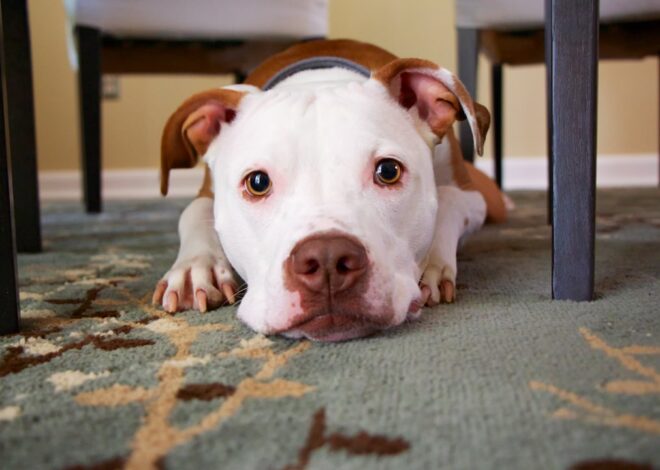
Does Popcorn Expire? The Truth Revealed!
Popcorn, a beloved snack enjoyed by people of all ages, has a relatively long shelf life compared to other snacks. When stored properly, popcorn can last for up to two years. This is due to the fact that popcorn kernels have a low moisture content, which inhibits the growth of bacteria and mold. The shelf life of popcorn can also be extended if it is stored in a cool, dry place, away from direct sunlight and heat. Additionally, commercially packaged popcorn often comes with a “best by” date, which indicates the date by which the popcorn is expected to be at its peak quality. However, it’s important to note that this date is not an expiration date, and the popcorn may still be safe to consume after this date has passed.
Popcorn that has been popped and is in its final form as a snack has a shorter shelf life than unpopped kernels. Once popped, popcorn can last for about one to two weeks if stored in an airtight container at room temperature. However, it’s important to keep in mind that the quality of the popcorn may deteriorate over time, becoming stale and losing its crunchiness. Despite this, as long as there are no signs of spoilage, such as mold or an off smell, popped popcorn can still be safe to eat beyond the two-week mark. Overall, the shelf life of popcorn varies depending on its form and how it is stored, but when stored properly, both unpopped kernels and popped popcorn can last for an extended period of time.
Key Takeaways
- Popcorn has a shelf life of 1-2 years when stored properly in a cool, dry place.
- Factors such as moisture, temperature, and exposure to air can affect the expiration of popcorn.
- Popcorn can expire and become stale, losing its crunch and flavor.
- Consuming expired popcorn can lead to stomach discomfort and potential food poisoning.
- Storing popcorn in airtight containers and keeping it away from moisture can help extend its shelf life.
Factors that affect the expiration of popcorn
Several factors can affect the expiration of popcorn, including moisture, temperature, and exposure to air and light. Popcorn kernels have a low moisture content, which helps prevent the growth of bacteria and mold. However, if popcorn is exposed to high levels of moisture, either from humidity in the air or improper storage conditions, it can lead to the kernels becoming damp and potentially moldy. This is why it’s crucial to store popcorn in a cool, dry place to maintain its quality and extend its shelf life.
Temperature also plays a significant role in the expiration of popcorn. High temperatures can cause popcorn kernels to dry out and lose their ability to pop properly. On the other hand, extreme cold temperatures can cause the kernels to become too dry and tough, making them difficult to pop. It’s important to store popcorn at a consistent room temperature to ensure that the kernels remain in optimal condition for popping.
Exposure to air and light can also impact the expiration of popcorn. When popcorn is exposed to air, it can become stale more quickly as the kernels absorb moisture from the surrounding environment. Additionally, exposure to light can cause the oils in the kernels to go rancid, leading to a change in flavor and quality. To extend the shelf life of popcorn, it’s essential to store it in an airtight container away from direct sunlight.
How to tell if popcorn has expired
It’s important to be able to recognize the signs that indicate whether popcorn has expired or gone bad. When it comes to unpopped kernels, if you notice any signs of mold or an off smell, it’s best to discard them immediately. Mold growth on popcorn kernels can appear as discolored spots or fuzzy patches, and the presence of mold indicates that the popcorn is no longer safe to consume.
For popped popcorn, there are several indicators that can help you determine if it has expired. The first thing to look for is any signs of mold or unusual discoloration on the popcorn. If you notice any green or black spots on the popcorn, it’s a clear sign that it has gone bad and should be thrown away. Additionally, if the popcorn has an off smell or taste, it’s best to err on the side of caution and avoid consuming it.
Another way to tell if popped popcorn has expired is by assessing its texture and appearance. Expired popcorn may appear stale and lose its crunchiness, becoming chewy or soft instead. If you notice a significant change in texture or if the popcorn has become limp or soggy, it’s likely past its prime and should be discarded. Overall, being able to recognize these signs will help you determine whether your popcorn has expired and ensure that you consume it while it’s still safe and enjoyable.
The potential risks of consuming expired popcorn
| Risk Factor | Description |
|---|---|
| Microbial Contamination | Expired popcorn may harbor harmful bacteria, mold, or yeast, leading to foodborne illnesses. |
| Rancidity | The oils in popcorn can become rancid over time, leading to an unpleasant taste and potential health risks. |
| Decreased Nutritional Value | Expired popcorn may have reduced levels of nutrients, such as vitamins and minerals, impacting its nutritional value. |
| Allergic Reactions | Individuals with allergies may experience adverse reactions if they consume expired popcorn containing allergens. |
Consuming expired popcorn can pose several potential risks to your health. One of the primary concerns is the presence of mold on the kernels, which can produce mycotoxins that are harmful when ingested. Mycotoxins are toxic substances produced by certain molds and can cause a range of adverse health effects, including nausea, vomiting, and allergic reactions. In severe cases, mycotoxin exposure can lead to more serious health issues such as liver damage and respiratory problems.
In addition to mold growth, expired popcorn may also contain rancid oils that have developed due to exposure to air and light. Rancid oils can produce an unpleasant taste and odor in the popcorn and may also have negative effects on your digestive system when consumed. Consuming rancid oils can lead to gastrointestinal discomfort such as stomach pain, diarrhea, and nausea.
Furthermore, expired popcorn may have lost its nutritional value and quality over time. As the popcorn becomes stale and loses its crunchiness, it may also lose some of its essential nutrients and antioxidants. Consuming stale popcorn may not provide the same nutritional benefits as fresh popcorn, which could impact your overall diet and health. Overall, consuming expired popcorn poses potential risks to your health due to mold growth, rancid oils, and loss of nutritional value.
Tips for storing popcorn to extend its shelf life
To extend the shelf life of popcorn and maintain its quality, there are several tips for proper storage that you can follow. When it comes to unpopped kernels, it’s essential to store them in an airtight container in a cool, dry place away from direct sunlight and heat. This will help prevent moisture from affecting the kernels and inhibit mold growth. Additionally, keeping unpopped kernels in a sealed container will also help maintain their freshness and prevent them from becoming stale.
For popped popcorn, it’s equally important to store it in an airtight container at room temperature. This will help protect the popcorn from exposure to air and moisture, which can cause it to become stale more quickly. It’s also advisable to store popped popcorn away from light sources to prevent the oils in the kernels from going rancid.
Another tip for extending the shelf life of popcorn is to consider vacuum sealing it for long-term storage. Vacuum sealing removes air from the packaging, which helps preserve the freshness of the popcorn and prevents it from becoming stale or absorbing moisture. This method is particularly useful for storing large quantities of unpopped kernels for an extended period.
Overall, proper storage is key to extending the shelf life of popcorn and maintaining its quality. By following these tips for storing both unpopped kernels and popped popcorn, you can ensure that your favorite snack remains fresh and enjoyable for as long as possible.
Can you revive stale popcorn?

If you find yourself with stale popcorn that has lost its crunchiness and become less enjoyable to eat, there are several methods you can try to revive it. One way to restore stale popcorn is by reheating it in the oven or microwave. By placing stale popcorn on a baking sheet or microwave-safe dish and heating it for a short period of time, you can help remove some of the moisture that has caused it to become stale. This can help restore some of the crunchiness and freshness to the popcorn.
Another method for reviving stale popcorn is by adding moisture back into it using a damp paper towel or cloth. By placing a damp paper towel or cloth in an airtight container with the stale popcorn and letting it sit for a few hours, you can help rehydrate the kernels and improve their texture. This method can be particularly effective for reviving unpopped kernels that have become dry and tough.
Additionally, you can try adding flavorings or seasonings to stale popcorn to enhance its taste and make it more enjoyable to eat. By tossing stale popcorn with melted butter or oil and your favorite seasonings such as salt, cheese powder, or spices, you can give it a new lease on life and create a tasty snack that’s hard to resist.
Overall, while reviving stale popcorn may not fully restore its original texture and quality, these methods can help improve its taste and make it more enjoyable to eat. By experimenting with different techniques for reheating and flavoring stale popcorn, you may find a way to breathe new life into your favorite snack.
The truth about the expiration of popcorn
In conclusion, the expiration of popcorn depends on various factors such as moisture content, temperature, exposure to air and light, as well as its form (unpopped kernels vs popped). When stored properly in a cool, dry place away from direct sunlight and heat, unpopped kernels can last for up to two years due to their low moisture content inhibiting bacterial growth. Popped popcorn has a shorter shelf life of about one to two weeks when stored in an airtight container at room temperature due to its loss of crunchiness over time.
Factors such as mold growth on kernels, rancid oils from exposure to air and light, loss of nutritional value over time are potential risks associated with consuming expired popcorn. Proper storage tips such as using airtight containers for both unpopped kernels and popped corn at room temperature away from light sources are essential for extending shelf life.
Reviving stale popcorn is possible through reheating in an oven or microwave or adding moisture back using a damp paper towel or cloth in an airtight container with the stale corn. Adding flavorings or seasonings can also enhance its taste.
In conclusion, understanding how proper storage methods can extend shelf life while recognizing signs of expiration will ensure that you enjoy your favorite snack safely while maintaining its quality.
If you’re wondering about the shelf life of popcorn, you might also be interested in learning about the benefits of mindfulness and meditation. Inner Peace Haven offers a great article on how to incorporate mindfulness into your daily routine and the positive impact it can have on your overall well-being. Check it out here for some valuable insights on finding inner peace.
FAQs
What is the shelf life of popcorn?
Popcorn can typically last for 1-2 years if stored properly in a cool, dry place.
How can I tell if popcorn has expired?
Expired popcorn may have a stale or rancid smell, and the kernels may not pop as well as fresh popcorn.
Can expired popcorn make you sick?
Eating expired popcorn is unlikely to make you sick, but it may not taste as good and the texture may be compromised.
How should I store popcorn to extend its shelf life?
Popcorn should be stored in an airtight container in a cool, dry place to keep it fresh for as long as possible.
Can I still eat popcorn after the expiration date?
While it is generally safe to eat popcorn after the expiration date, the quality may not be as good as when it was fresh.


